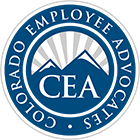Discrimination is not restricted to workplace treatment. It may become a pocketbook issue and involve your wages.
Equal pay for Equal Work Act
In Jan. 2021, Colorado’s Equal Pay for Equal Work Act took effect. It is intended to prevent gender discrimination by preventing pay differences among men and women.
Its major provisions include:
- Companies may not rely on wage histories, which often discriminated against women, to set salaries for individual prospective employees.
- Employers must immediately provide notice of opportunities for promotions to their current employees.
- Job postings have to contain information on compensation and benefits.
The law covers employees working in Colorado and working in remote positions that could be performed by an employee in Colorado. Multi-state employers do not have to provide the information for positions outside of the state but must give notice for its employees in Colorado.
Job postings
All internal and external job postings must contain the following:
- The exact hourly wage or salary, or pay range, for the offered position.
- General description of the bonuses or job perks.
- General description of heath care, retirement, paid time off and other benefits. This does not have to describe premium costs or specifics on coverage but needs to explain the nature of the benefits.
Notice of promotions
Any position that would advance a current employee’s compensation, benefits or status, duties, or overall career advancement has to be posted internally when the position becomes available. In addition to the information contained in the internal and external job postings, these notices must contain the job title and application instructions.
A promotional opportunity exists when the current holder of the job leaves and the company intends to fill that position, a new position is created or when an employee receives a promotion or a new job title and the employer wants to replace that employee in that role.
Notice of a promotional activity has to be written, available on the same day to employees who would be promoted if selected for that position and posted with sufficient notice that gives a reasonable amount of time to apply for that position. All employees must have access to this notice.
Other provisions
Employees may file complaints for violations of the Equal Pay for Equal Work Act with the state’s Department of Labor and Employment’s Division of Labor and Statistics for investigation. If the division determines that there was a violation, it can order the employer to take steps to bring itself into legal compliance. The Division may also impose fines of $500 to $10,000 for each violation.
Employers must keep records of each employee’s job description and compensation and any changes to the description or compensation. Records should be kept for the duration of their employment plus two more years.
The law also contains exceptions for promotional opportunity postings for temporary, acting, or interim postings that are held for less than six months, positions where a promotion is automatically considered after a trial period of no more than one year or for openings in which a current employee is being terminated and the position needs to be filled before employees know about the separation.
Attorneys can assist workers to obtain evidence and determine if their rights are being violated or if they are illegally underpaid. They can help them pursue their claims.

